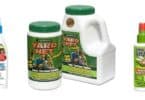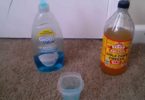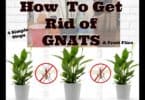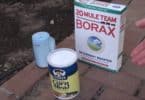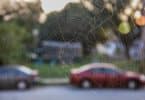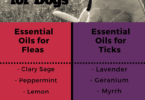Social and Solitary Wasps
The two main categories for wasps include the social wasps and the solitary wasps. Social wasps live in colony style dwellings. Female wasps do most of the work within the dwelling including making the nests, caring for the eggs and making the by products that are produced. The male wasps do all of the work outside of the nesting areas which includes gathering the materials used for making the nests, collecting food to carry back to the nesting area and pollination.
Solitary wasps are very different from the social wasps. Solitary wasps live alone from other wasps. They do not usually live in any type of nests. Most solitary wasp varieties live underneath the ground and in shrubbery areas. Solitary wasps lay eggs that are left alone to hatch and do not watch over them or care for them at all. Most solitary wasps do not sting unless they are under stress or feel threatened.
Methods For Eliminating and Removing Wasp Nests
Commercial Products
There are many commercial products available for killing wasps and their eggs. These products include:
Chemical and Insecticide Sprays – Chemical and insecticide sprays can be used to kill wasps and their eggs within the nest. These products are best for uses on areas outside of the home. They should not be used in confining areas that are not ventilated. You should not use these products if you have a pre-existing respiratory condition such as asthma as they can trigger a severe attack. You should also avoid using these products around infants and children as they can easily inhale the chemicals that are used in the make up of these products.
When using the chemical or insecticide sprays you should wait for evening time when the wasps are back at their nesting area. You can also use these products when temperatures are less than 50 degrees Fahrenheit as bees have a harder time flying in colder temperatures. Stand a safe distance from the nest that you want to spray. This is usually at least ten to fifteen feet away. Closer distances can put you in danger in the event that the wasps begin swarming from the nest. Aim your pressurized can of chemical or insecticide spray at the area you want to treat. Allow for a solid stream of spray to penetrate the nesting area completely. You should notice immediate results. Wait twelve to twenty four hours and remove the nest if possible by placing it into a plastic trash bag and tying it securely closed.
Dusting powders and gels
For wasp varieties that dwell underground or in vegetation areas you can use a dusting power or gel style repellant to kill the wasps and their eggs. The eggs from these type of wasps may be hard to locate because they are usually isolated. Make sure that you do not allow small children or animals to play in the areas that you have treated for at least forty eight hours. It is best to wait for evening time before applying the powders or gels as this is when the wasps return to their dwelling areas and you will get the best results.
Homemade Methods
People use several homemade methods for killing wasps and removing their nests. It is important to use extreme caution if you plan on using a method such as this as it can be very dangerous and the results are not always known.
One of the most popular home methods for killing wasps is to pour gasoline on their nesting areas. You do not have to light the areas on fire as the fumes from the gasoline are strong enough to kill the wasps and cause burning to their nests. The complete nesting area should be removed to prevent re-infestation from other wasps who may want to take up residency.
Vinegar is another method that can be used as vinegar has a high acidic rating and will cause burning to the wasps and their nest. The vinegar can penetrate the eggs of the wasps to prevent them from hatching as well.
<>


